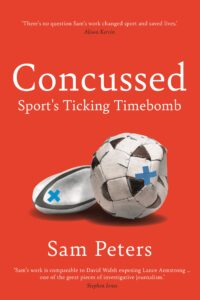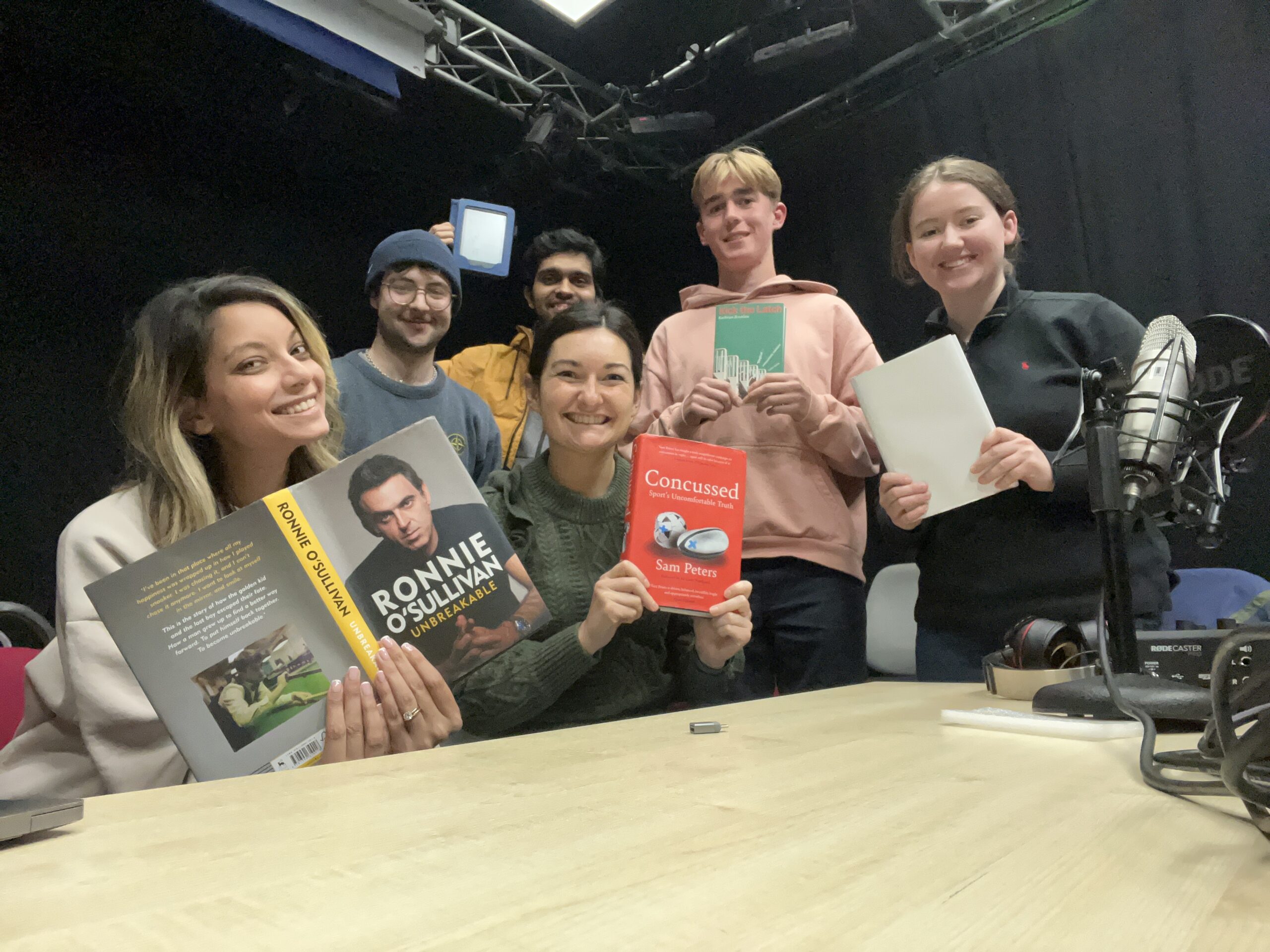SG Reviews – Concussed: Sport’s Uncomfortable Truth by Sam Peters
Sam Peters was one of the first sports journalists to cover the dark side of rugby that most others were too afraid to call out – concussions. Peters started and championed the Mail on Sunday’s concussion campaign for years. He’s now put almost a decade of interviews, research, and personal experiences as both a fan and journalist into the book, Concussed: Sport’s Uncomfortable Truth.

Peters expertly weaves together stories from retired athletes and research from the worlds of rugby, football, NFL, and more. Readers don’t have to follow rugby to become completely engrossed by Concussed. Peters craftily recounts the history of brain injuries and sport into a moving, and sometimes horrifying, book.
Where the journey began
The 2013 British & Irish Lions tour in Australia is where Peters’ ventures into concussion began. Australia’s former captain, George Smith, came out of international retirement to help his team. It wasn’t long before he clashed heads with another player and underwent a Pitchside Suspected Concussion Assessment. Despite the new protocols, Peters knew they’d find a way to get Smith back on the pitch.
The author told the Sports Gazette, “I just knew…that the overwhelming likelihood was that they’d find a way to get him back on the pitch. And they did.
“That was a big moment for me, because I became convinced that something needed to be done about it.
“I had a platform as the correspondent. I knew that I had a lot of eyeballs reading…the copy I was writing, and I sort of internally took a decision to try and use it to affect change.”

Exceedingly important and sometimes hard to stomach
There were certain parts of the book where readers may need to take a breather. One can feel the disdain dripping from Peters’ fingertips as he writes about disgraced neurologist Paul McCrory.
Peters says in the explosive chapter “The Bomb Goes Off,”
This sport-wide cover up, playing dumb to and undermining science which had long been established, was led by McCrory, the [Concussion in Sport Group] CISG and other complicit medics. This amounted, in my opinion, to a concerted and sophisticated attempt to muddy the science and create doubt where previously none existed. (p. 388)
These passages are particularly horrifying as Peters uncovers how much was truly hidden and deflected from professional rugby players so that those who profit off of them could continue to treat them as commodities.
Other chapters are hard to stomach for different reasons as they follow the personal impacts of brain injuries in sport. In-depth interviews range from former athletes like Lewis Moody, family members of athletes like Mel Berry and Dawn Astle, parents of children who passed away from brain injuries like Peter Robinson, and more.
In the particularly intense chapter, “Pulling the Pin,” Peters reflected on his discussions with Mel Berry, wife of ex-rugby player Nic Berry. Peters wrote, “Mel told me that by the end of Nic’s career she didn’t even care who had won the game, all she cared about was whether he was still conscious by the final whistle” (p. 181). It’s these gut-wrenching views into the dark side of rugby that make the reader feel like they are part of the story.
These are real examples that Sam Peters makes you feel intimately. Readers may feel physically sick while reading certain stories, but Peters shows how necessary they are to shine a light on.
Never does Concussed feel self-congratulatory. Peters is not here to toot his own horn about his impact creating concussion protocol changes in professional rugby. He’s instead, once again, using his platform to ensure rugby and other sports move in the right direction, continue educating parents and players, and better protect athletes from the potential consequences of brain injuries.
If there is one gripe to have about Concussed it’s that some of the early chapters are not chronologically organised. As a result, they can be hard to follow along with if you are a newbie to the world of rugby. Alongside this, there are some anecdotes that are mentioned multiple times in different contexts. These are very small complaints that have little to no effect on the impact of this read.
The Sports Gazette’s Julia Andersen and Will Thurtle chatting with Sam Peters earlier this month
Why Concussed will win
Peters told the Sports Gazette that making this year’s William Hill Sports Book of the Year shortlist was “very humbling”. He added, “it’s already a career highlight to be on that shortlist of six books, and I know all the other books are really worthy of being up there as well.”
If I was Peters, I would get my acceptance speech ready. Not only is his book extremely timely, well-written, and well-researched, it is similar in breadth to previous winners. Think 2014 winner Night Games: Sex, Power and a Journey into the Dark Heart of Sport, 2013’s Doped: The Real Life Story of the 1960s Racehorse Doping Gang, and 2012 winner The Secret Race: Inside the Hidden World of the Tour de France: Doping, Cover-ups.
Uncovering the dark inner workings of sports is usually well received by this panels and there is no reason this year’s award should be any different.

Score: 4.5/5
Concussed was shortlisted for the 2023 William Hill Sports Book of the Year Awards. The winner is to be announced in London on Thursday, November 30.
(Click here to read Sports Gazette’s review of Kick the Latch and here for the review of Althea: The Life of Tennis Champion Althea Gibson. Both books also on the shortlist.)